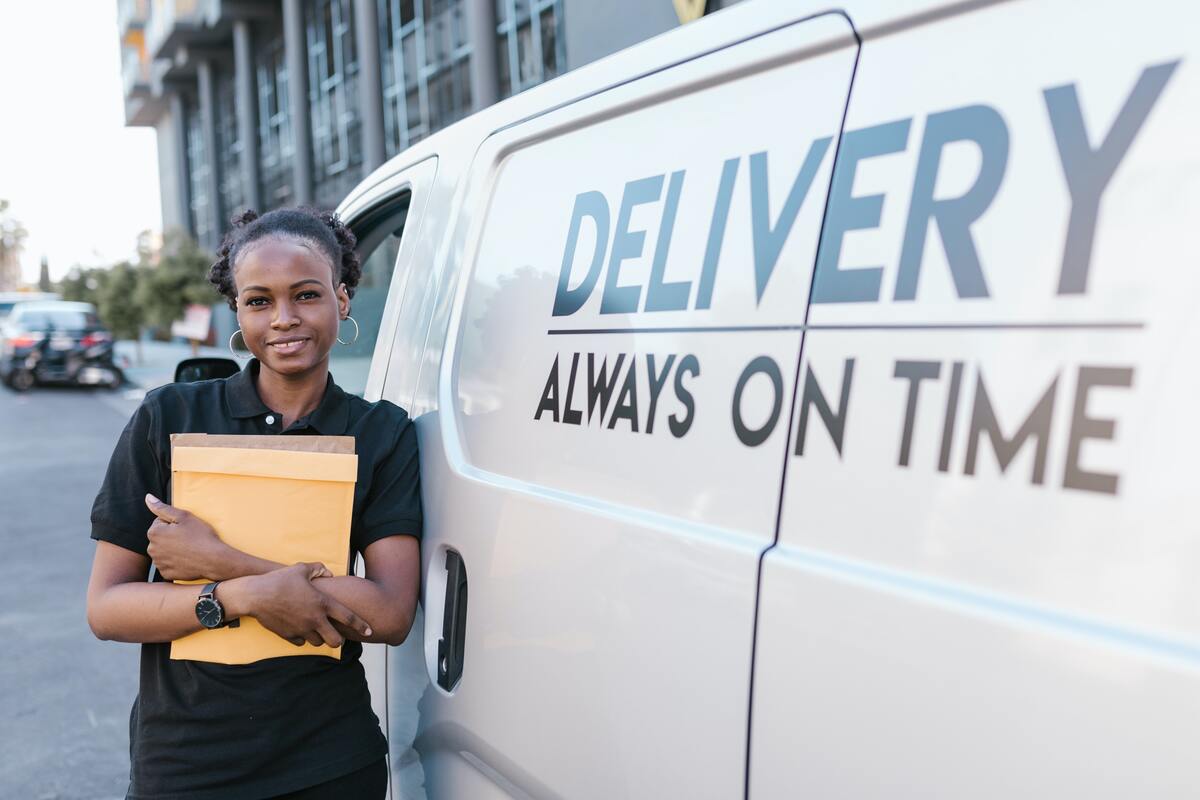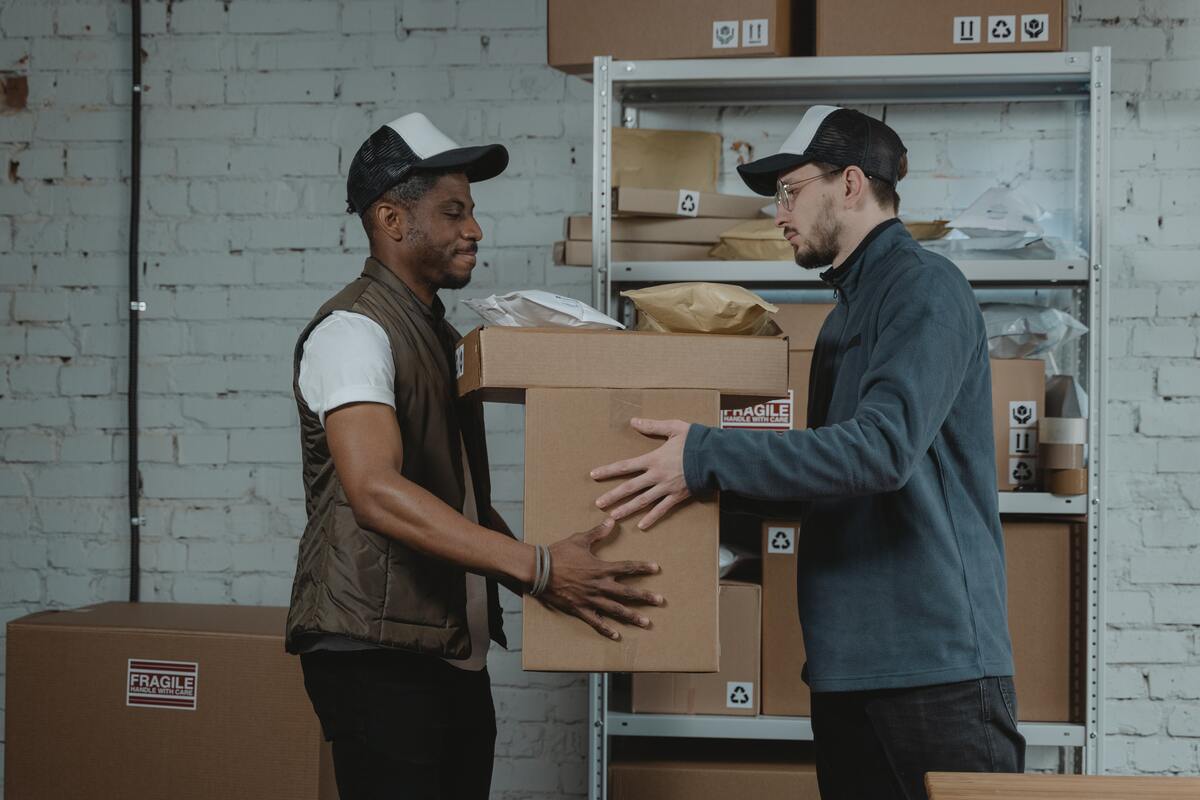The Recent Innovations in Last-Mile Delivery Technology


In logistics, the last mile is often the most critical and challenging segment of the delivery process. It's when items are moved from a warehouse or store to their final location, which is frequently a customer's doorstep. The efficiency and effectiveness of last-mile delivery can significantly impact customer experience, delivery costs, and even environmental sustainability.
The logistics industry has been undergoing a remarkable transformation to address these challenges, driven by technological innovations and evolving customer expectations. This article will explore the recent innovations in last-mile delivery technology and their impact on the industry.
The Last-Mile Challenges
The last mile of delivery is notorious for being costly and complex. It often involves navigating through dense urban areas, dealing with unpredictable traffic, ensuring timely delivery, and managing the delivery cost.
The rapid growth of ecommerce and the desire for same-day or even faster delivery times have only intensified these challenges. Here's how recent innovations are helping address these issues.
Crowdsourcing in Last-Mile Delivery
Crowdsourcing has emerged as an innovative strategy in the world of last-mile delivery. It's all about harnessing a network of individuals, often independent contractors or local couriers, to manage the delivery process. Companies leverage sophisticated technology platforms to match couriers with nearby orders, making the process efficient and flexible.
What makes this approach stand out is its adaptability. It's a perfect fit for handling fluctuating delivery demands and reaching areas that might be challenging for traditional delivery methods. Crowdsourcing extends the reach of delivery fleets and provides valuable economic opportunities for local couriers. It's a win-win solution for businesses and local communities alike.
Autonomous Vehicles
Autonomous delivery vehicles, including self-driving cars and delivery robots, are being tested for their potential to revolutionize final-mile delivery. They promise cost savings, reduced delivery times, and improved delivery capacity.
For instance, autonomous delivery vehicles can operate 24/7, making it possible to provide same-day and even 24/7 delivery services. This innovation enhances the flexibility of delivery schedules and addresses the challenge of providing timely delivery, even during off-peak hours.
Delivery Drones and Robots
One of the most futuristic innovations in last-mile delivery is using delivery drones and robots. Companies like Amazon and Google's Wing have been testing the use of autonomous drones to deliver small packages directly to customers' homes. These drones can navigate traffic and obstacles to reduce delivery times and costs.
On the other hand, delivery robots are designed to operate on sidewalks and streets, further streamlining the last-mile delivery process. They can handle smaller deliveries efficiently and safely, contributing to a faster and more reliable delivery process.
Contactless Delivery
The COVID-19 pandemic accelerated the adoption of contactless delivery options. Customers concerned about the potential transmission of the virus, have sought contactless delivery methods that minimize direct physical contact with delivery personnel.
This new idea entails setting up specific drop-off locations where clients can pick up their products without dealing with a delivery person. Additionally, customers can receive delivery updates and proof of delivery electronically, ensuring a safe and convenient customer experience. This trend continued beyond the pandemic as customers appreciate contactless delivery's convenience and peace of mind.
In-House Shipping Carriers
Some large ecommerce companies have taken control of their last-mile delivery operations by establishing in-house shipping carriers. This strategy allows them greater control over the entire delivery process, reducing reliance on third-party providers and ensuring a seamless customer experience.
By managing their delivery fleets and leveraging real-time visibility and route optimization tools, companies can enhance the reliability and efficiency of their last-mile delivery operations. This approach also enables them to address delivery issues more directly and provide faster delivery times.
Urban Warehousing

As online shopping becomes more dominant, the demand for fast, dependable deliveries, especially in urban areas, has surged. Urban warehousing responds to this demand by placing distribution centers and warehouses closer to urban hubs. Benefits of urban warehousing include:
- Proximity to Customers: By locating warehouses in urban centers, products reach customers' doorsteps faster, meeting the demand for same-day and one-hour delivery services.
- Efficient Inventory Management: Popular items are kept in stock near customers, minimizing stockouts and eliminating delivery delays.
- Traffic Relief: Warehouses near urban areas reduce traffic congestion and lower delivery costs, decreasing environmental impact.
- Sustainability: Urban warehousing promotes eco-friendly delivery by encouraging low-emission vehicles.
- Enhanced Customer Experience: Urban warehouses provide flexibility, faster order fulfillment, and improved customer experiences, even during peak demand.
However, while urban warehousing offers numerous benefits, real estate costs in urban areas are higher, and efficient warehouse operations are crucial to handle increased order volumes.
Green Logistics and Sustainability
Green logistics, also known as eco-friendly or sustainable logistics, has emerged as a critical response to the increasing environmental impact of last-mile delivery.
The environmental impact of last-mile delivery has not gone unnoticed. Consumers' awareness of ecological risks associated with their online shopping habits is growing, prompting logistics companies to adopt eco-friendly practices such as:
- Sustainable Transportation Methods: This includes transitioning to electric vehicles, using bike couriers, and exploring alternative, more eco-friendly transportation options.
- Efficient Warehousing Practices: Green logistics emphasizes optimizing warehouse operations to reduce energy consumption and wasteful practices.
- Minimizing Idle Time: This includes implementing efficient scheduling and routing and reducing fuel consumption and emissions.
- Sustainable Packaging: This includes the use of minimal and eco-friendly packaging materials, reducing waste and environmental impact.
This approach also emphasizes compliance with environmental regulations, contributing to carbon offset programs, and efficiently handling product returns and recycling.
By embracing green logistics, businesses reduce their carbon footprint and cater to the growing consumer demand for eco-friendly delivery options. It’s a smart business move, as it aligns with customer values and helps build a positive brand image.
Large and Heavy Item Delivery
The last mile isn't just about small packages and envelopes. Many companies are innovating to address the challenge of delivering large and heavy items. This involves developing specialized equipment and services that deliver products like furniture, appliances, and construction materials safely and on time.
In some cases, companies are exploring options like automated lifting and unloading equipment to assist delivery personnel in handling heavy items, reducing the risk of injury and improving the efficiency of large item delivery.
Route Planning and Optimization

Artificial intelligence (AI) and route optimization software have played a pivotal role in streamlining the last-mile delivery process. These technologies help logistics companies efficiently deal with the following:
- Planning delivery routes;
- Reducing travel time;
- Fuel consumption;
- Overall delivery costs.
With AI-powered route planning, delivery providers can ensure reliable delivery within shorter delivery times.
Additionally, some companies use machine learning algorithms to predict delivery times more accurately based on various factors, such as traffic, weather, and historical delivery data. By continuously optimizing their routes, logistics companies can improve delivery capacity and meet customer expectations for faster delivery times.
Real-Time Tracking and Visibility
One of the most significant innovations in last-mile delivery technology has been the introduction of real-time tracking and visibility solutions. Thanks to these advancements, customers can track their real-time deliveries, receive delivery updates, and even predict delivery windows accurately. This level of transparency enhances the customer experience and reduces concerns about delivery delays.
Moreover, logistics companies and delivery providers can use real-time data to monitor the location of their delivery fleets and make necessary adjustments. This technology has become indispensable for ensuring timely delivery and efficient last-mile logistics. Whether it's a delivery truck, an electric vehicle, or even a delivery drone, real-time tracking allows logistics partners complete visibility into their delivery operations.
Reverse Logistics
Reverse logistics is when customers return their purchases to manufacturers or retailers. This practice has seen innovations to make the process more cost-effective and customer-friendly.
Improved return procedures, including automated return labels and designated drop-off points, simplify the process for customers. This approach minimizes the cost of return shipping and processing for customers and companies, contributing to a more efficient and cost-effective delivery process.
Omnichannel Retailing
Omnichannel retailing, a pivotal evolution in the retail landscape, offers customers unparalleled convenience and personalization. Customers can now seamlessly order products online, and the flexibility of choosing their preferred delivery method - whether it's in-store pickup or home delivery - is a game-changer. This diverse range of options enhances the shopping experience, ensuring customers can tailor their journey to meet their unique needs.
Last-Mile Delivery Technology: Final Words
Last-mile delivery technology is a dynamic and ever-changing field aiming to satisfy evolving demands from businesses and consumers. It incorporates innovations like autonomous vehicles, real-time tracking, electric vehicles, and sustainable delivery methods.
While challenges such as the cost of delivery and complex last-mile deliveries persist, the industry is committed to finding innovative solutions. By embracing these changes, companies can create a brighter, more efficient future for last-mile delivery, enhancing the customer experience and benefiting the environment through reduced carbon footprints.
Looking For a Reliable Shipping Partner?
At UNIVAL Logistics, we're deeply involved in the exciting world of innovation regarding last-mile delivery technology. We embrace these advancements by combining reliable methods with the latest tech solutions. Our specialty is ensuring the secure transportation and insurance of high-value goods, especially during the last mile of delivery.
We've equipped all our vehicles with real-time tracking, making it easy to get insurance coverage for your packages at competitive rates. Moreover, we offer seamless integration with your website through UNIVAL's API to make your last-mile deliveries smoother. You can trust us to make sure your packages get to their final destinations on time.
If you'd like to learn more about our service, don't hesitate to contact us.
Latest blogs
Dimensional (DIM) Weight in Shipping: What It Is & How It’s Calculated
Wed, Jan 14th 2026, 07:11
 Continue Reading →
Continue Reading →
The Rise of Online Luxury Sales and What It Means for Jeweler
Wed, Nov 19th 2025, 02:32
 Continue Reading →
Continue Reading →
Categories
default